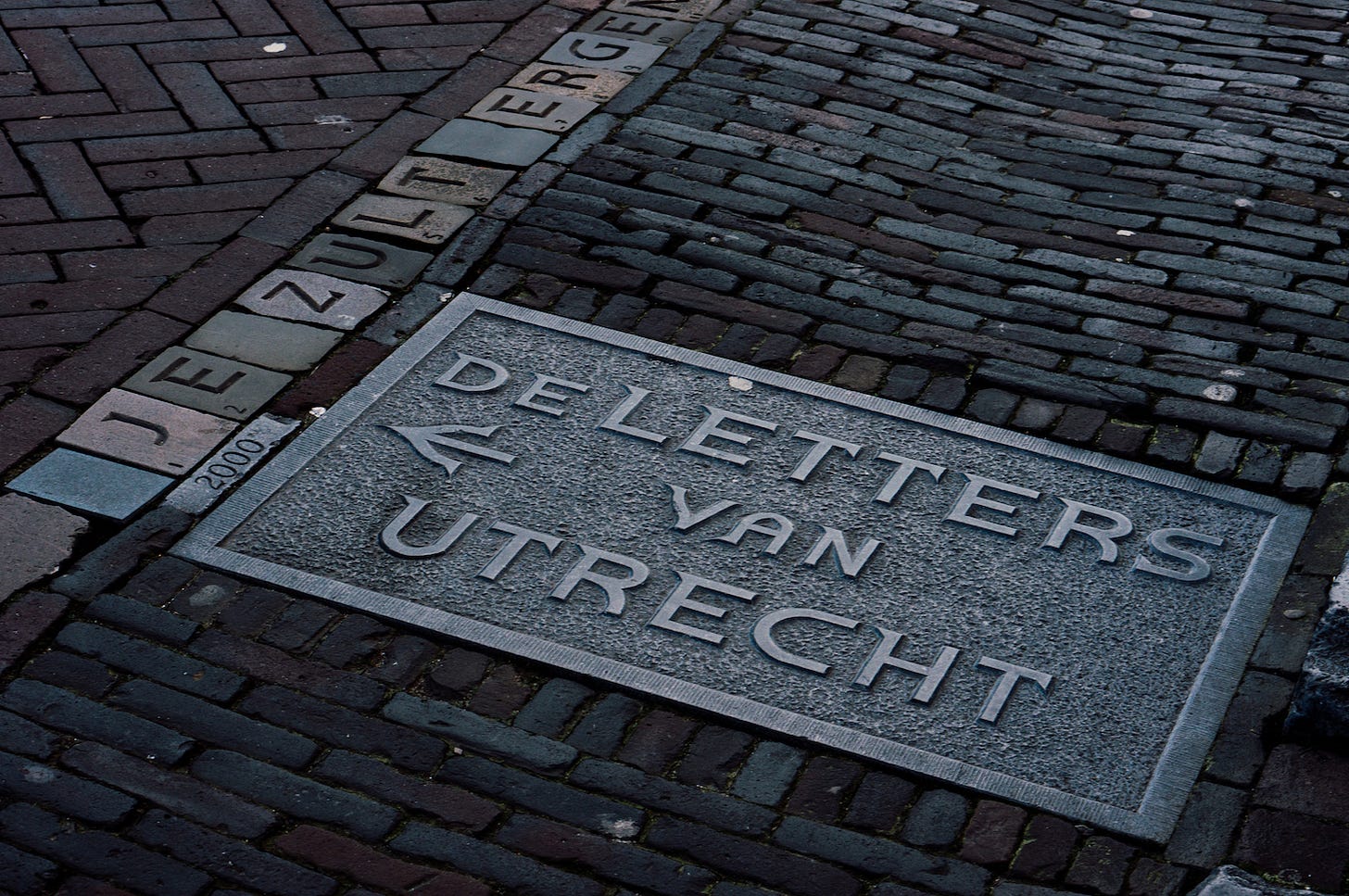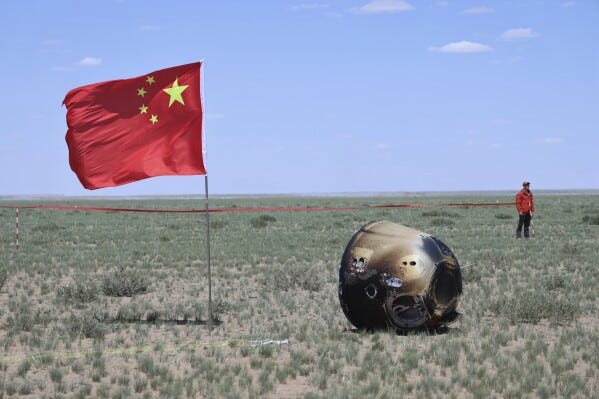#43: Mt. Gox, AI Collapse, Laser Weapon, Google's Emissions, Heat Pumps, War-avoiding Eagles, and more!
Hi everyone!
In this edition of the newsletter, I’m experimenting with some new sections:
“On This Day” highlights historical events that happened on this day
“Questions nobody asks” addresses weird questions I had (and took a bit too seriously)
Hope you enjoy those!
Take care
Xavier
🤓 Cool Stuff I Found on the Internet
Mt. Gox's $2.7B Bitcoin Transfer
In 2014, Mt. Gox was the biggest crypto exchange and handled 70% of all Bitcoin transactions. It collapsed after large amounts of Bitcoins were stolen. Today, the bankruptcy estate is planning to transfer the remaining coins back to creditors. This could put pressure on Bitcoin's price, especially considering Germany is currently selling seized Bitcoin.
War in Ukraine Forces Eagles to Reroute
Greater Spotted Eagles have altered their migration routes through Ukraine to avoid the ongoing conflict. GPS data from tagged birds revealed significant deviations from their usual paths, longer travel distances, and less time spent at crucial refueling sites.
UK Navy Embraces Laser Weapons
The UK Ministry of Defence announced plans to equip multiple vessels with DragonFire, a laser directed energy weapon. According to the military, it holds strategic significance as DragonFire can take down enemy drones cheaply. I even made a Short about it!
The Physics of Cycling
This amazing article explores the complex interplay of forces that make bicycles functional and stable. It covers fundamental physics concepts like forces, moments, and stress, applying them to bicycle components. Once again, a masterpiece by Bartosz Ciechanowski, which has been featured in this newsletter many times before.
The Endless Poem: Letters of Utrecht
The Letters of Utrecht is an ongoing art project in the Dutch city of Utrecht, where a poem is gradually carved into cobblestones, one letter every Saturday. Started in 2012, the project aims to continue indefinitely, growing by about five meters each year. Different poets contribute to the poem over time, with each sentence taking roughly three years to complete.
⏳ On this day...
1918 - Birthday of Alberto Ascari, two-time F1 champion. He's the first and only Italian to win the championship, and was Ferrari's first champion.
1919 - British airship R.34 lands in Norfolk, becoming the first airship to cross the Atlantic.
1973 - Alexander Butterfield reveals existence of secret taping system in the Oval Office, ultimately leading to the resignation of President Nixon.
🧠🤖 Artificial intelligence
Cooling AI-Powered Data Centers
As AI workloads surge, traditional air-cooled data centers are struggling to keep up with the heat generated by powerful processors. The heat output of servers powering AI applications is 5-10 times higher than traditional ones! Liquid cooling is becoming the most effective way to manage this heat.
Model Collapse: The Silent Killer of AI Performance
Model collapse, a phenomenon in machine learning, occurs when AI models degrade because of training on synthetic data, mainly outputs from previous models. In an early stage, models will perform worse on some tasks while overall performance is increasing. In a later stage, models will perform significantly worse. We may have already reached the early stage as AI-powered search engine Perplexity is citing AI-generated spam.
👽 Space
Samples from the dark side of the Moon
China’s Chang’e 6 spacecraft has successfully returned the first-ever soil samples from the Moon’s far side. That side has a lot more craters compared to the side we see. The samples, collected from the South Pole-Aitken Basin, could provide insights into the Moon’s formation.
Ariane 6 Lifts Off
Europe’s new Ariane 6 rocket successfully launched for the first time, marking a significant milestone in European space exploration. This launch ends a year-long gap caused by the retirement of the previous Ariane 5 rocket. The Ariane 6, developed at a cost of nearly $4 billion, is more versatile and competitive in the current space launch market.
Life could thrive on tidally locked planets
Tidally locked planets always have one side faces their star. I thought that meant they cannot sustain life as one side gets scorching hot while the other is freezing. But I was wrong. Life can thrive on these planets, especially in the twilight zones.
How James Webb Space Telescope Beams Data to Earth
This article takes you through the challenges of beaming data to Earth from a satellite that's 1.5 million kilometers away. JWST uses Ka-band frequencies to transmit up to 57 GB of data daily at 28 Mbps. That's a respectable speed. The telescope doesn't maintain a constant connection with Earth, and has a 68GB solid state drive onboard to cache data between periods of radio contact.
🤨 Questions nobody asks
I listen to Spotify pretty much the entire working day. That got me thinking... If Spotify pays artists per stream, how many songs do I have to listen before I've "used up" my subscription?
Then I wondered, could I bankrupt Spotify or Apple by listening to too much music?
Let's dive in! Read the full post →
⚡️ Energy & Environment
If everyone would be as efficient as Google...
Google’s carbon emissions have surged by 48% since 2019, largely because of expanding data centers and the energy demands of AI. However, this article puts that into context. Google’s carbon efficiency per dollar of revenue has improved by 28% in the same timeframe. Compared to the US economy, Google is 4 times more efficient. If the US economy was as efficient as Google, its emissions would drop to 1.29 billion tons, well below the targets set in the Paris Agreement.
Most efficient heat pumps in the world
Installers of heat pumps are competing for the most efficient setup on HeatpumpMonitor.org. Some are reaching COPs of over 5, meaning that for every unit of electricity that goes into the heat pump, it generated 5 units of heat. However, the COP (coefficients of performance) isn’t everything, as it can be negatively influenced by seasons.
Last year, renewables produced 44% of all electricity in EU
In 2023, renewable energy became the leading source of electricity in the EU, accounting for 44.7% of production. Simultaneously, fossil fuel electricity production fell by 19.7%, with natural gas reaching its lowest level since 1995. The shift is attributed to the EU's RePowerEU plan, implemented in response to the 2022 energy crisis, and mark a significant step towards the EU's clean energy transition.








